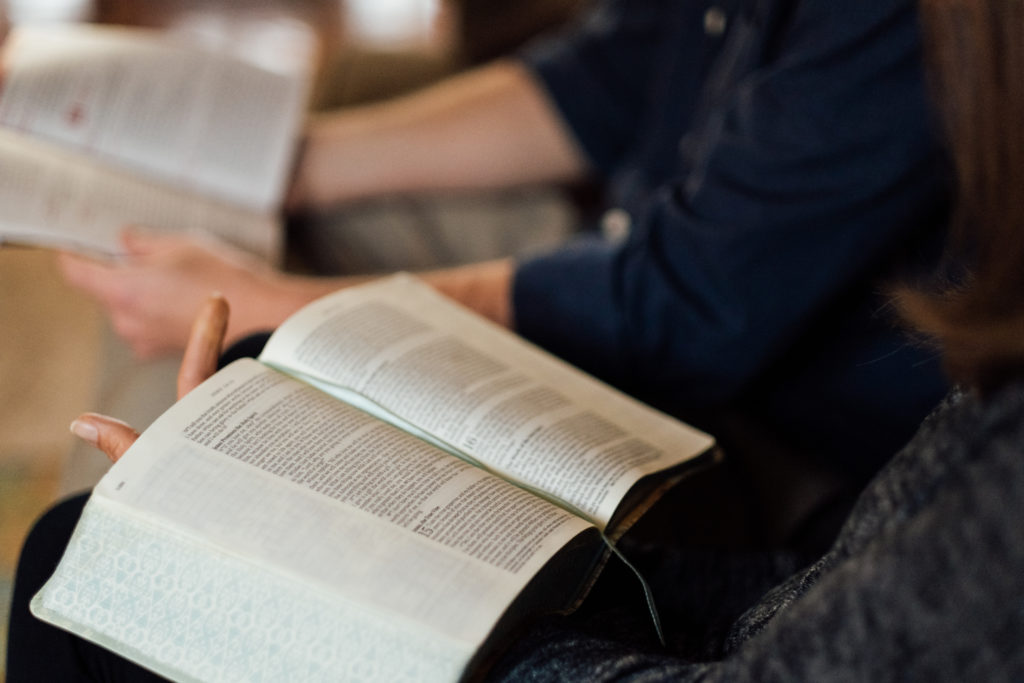Last year, my husband and I had the privilege of traveling to Israel for a Holy Land pilgrimage. For months, I looked forward to this trip, imagining what it would be like to walk where Jesus walked and visit the places that are now holy because of his earthly life. One place that left a profound impact on me was the place of Jesus’ baptism.
Too often, religious sites in Israel can become noisy, chaotic tourist traps that leave little opportunity for meditation and thoughtful reflection. The location of Jesus’ baptism is a rare exception. Jesus was baptized in the Jordan River north of the Dead Sea and east of Jerusalem. Leaving Jerusalem, the scenery changes almost instantly from a green, mountainous city to a dramatic desert landscape with dry river beds, canyons, rocky mountains and barren plains. Today, the area is still largely unpopulated. Although a number of tour groups were present at the site, amazingly, the location had an atmosphere of peace and simplicity. As I stared at the muddy water and the surrounding vegetation, I could feel the years disappear and imagined the scene as it is recounted in the Gospels.
What are the implications of Jesus’ baptism? Jesus, in anticipation of his death on the cross and his resurrection from the dead, opens a fountain of grace for all of humanity and gives all people access to God. Whereas in the Old Testament, entry into God’s covenant was only through the circumcision of a Jewish male, now, through faith and baptism, all have free and equal access to God. Baptism is the fulfillmentof circumcision and has extended the covenant to all people, including us! Thus, from baptism is born the one People of God of the New Covenant, which transcends all nations, cultures, races and sexes (Catechism of the Catholic Church1267).
The fruit of baptism is a rich reality that includes the forgiveness of sins, birth into new life and the gifts of the Holy Spirit. By this very fact, the baptized person is incorporated into the church, the body of Christ, and is called to live in communion with this body (CCC1267, 1269).
Unlike having a gym membership, when one comes and goes at will and takes advantage of a menu of services, living in communion with the body of Christ has deep significance for one’s entire life. Through baptism, one enters into a covenant with God, and with that come rights and responsibilities. Though this may sound restrictive on the surface, it actually invites the believer into a new era of freedom and possibilities through a life in the Spirit.
Rights
So what advantage is it to be incorporated into the body of Christ? First, the baptized person has extraordinary dignity because he or she is an adopted child of God and co-heir with Christ (Rom 8:17). What does this mean? The notion of Israel as God’s “child” is a prominent motif in the Old Testament. It denotes a privilege reserved to Israel as God’s people, redeemed from Egypt, under divine protection. As God’s child, Israel enjoys an intimacy and closeness shared by no other nation. In the New Covenant, the baptized enjoy precisely this status,and, as heirs, their inheritance is the gift of eternal life. Because Jesus rose from the dead, those incorporated into his body will as well.
In his letter to the Ephesians, St. Paul helps the young church acquire a deeper appreciation for this gift. Paul regards his readers to be like royal children who possess enormous wealth but do not grasp the value of what belongs to them:
“May the eyes of [your] hearts be enlightened, that you may know what is the hope that belongs to his call, what are the riches of glory in his inheritance among the holy ones and what is the surpassing greatness of his power for us who believe …” (Eph 1:18-19)
Paul is calling the body of Christ to live with tremendous hope. Heaven is on the horizon! Paul wants his readers to grasp this reality because clarity about our ultimate future changes the way we live today. If a man had to take a miserable job for a year knowing that at the end of the year he would receive $10,000, he would probably be an unhappy worker. If, however, he knew that at the end of the year he would receive $10 million dollars, he might well whistle while he worked! (Ephesians, Peter S. Williamson, p. 48-49)
In addition, Paul is trying to convey that the same power that raised Jesus from the dead is available to members of his body. In his exalted position at the right hand of the Father, Christ wields the authority to govern the cosmos. As a result, that power is available to Christians in the face of the world’s opposition.
This message is so relevant to us today! We can count on the power of Christ to help us live faithfully in a culture that does not acknowledge God. The sacramental life of the church and the sacred Scriptures are the vehicles through which God gives us this grace (CCC1269). It is a great right and privilege to have access to this grace, yet so many Catholics misunderstand the sacraments and don’t read Scripture. We, like the church in Paul’s day, can be like royal children who don’t appreciate what we have.
Responsibilities
As a member of the church, the baptized person belongs no longer to himself but to him who died and rose for him (CCC1269). As a result, members are now available to work on Christ’s behalf. The baptized are a physical extension of Christ in the world. This is more than an analogy — the Church is not merely like a body; it is Christ’s body.
By virtue of their baptism, members of Christ’s body become missionaries, sharing in the priesthood of Christ and in his prophetic and royal mission (CCC1268). Christ builds the church through the gifts of the Spirit that are given at baptism. These gifts are given to build up the body of Christ (1 Cor 12:7). The gifts are distinctive and unique, allotted to each one individually just as the Spirit chooses (1 Cor 12:11). When the body of Christ uses these gifts as God intended, the church runs like a well-oiled machine. If not, then something is lacking.
An analogy can help make this clear. If the brain issues a command to wiggle the toes and the body is healthy, the toes wiggle. However, if a nerve is severed and the command never reaches that part of the body, the toes do not wiggle. The same is true for us. If we are not open to the movement of the Spirit and do not utilize the gifts that have been given us, we can paralyze the body of Christ.
Perhaps it is no coincidence that Jesus’ baptism took place against the backdrop of a barren and arid countryside. Absence of water will always be the biblical symbol of man’s need for God. Our life in God begins with the waters of baptism and is nourished by the living water that is the Holy Spirit. Without this water, we become dry, rigid and brittle, but with this water, we are able to live out our baptismal call.




